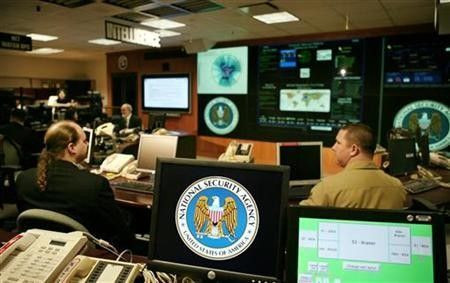Snowden NSA Leaks: Rep. Schiff Introduces Bill To Reform Secret Court

Thanks to the leaks from former NSA contractor Edward Snowden, Congress has turned its attention not only to the agency’s spying activities but also the secretive body that greenlights its data collection operations: the secret Foreign Intelligence Surveillance Court (FISC).
On Friday, Rep. Adam Schiff, D-Calif., will introduce legislation to reform how the FISC makes major decisions by making the process adversarial. In other words, rather than a one-sided process wherein the government presents its request to the court, in serious opinions, the government’s side would receive pushback from a public advocate.
The idea for a special advocate at the court took off in July after a former FISC judge said that the judges would benefit deciding between two sides on the important issues that are now coming before the FISC -- a result of the changing role of the secret court that for decades simply approved data requests but is now deciding important constitutional questions and overseeing ongoing surveillance programs. The idea quickly took hold in Congress, where three senators introduced similar legislation in early August. Even President Obama supports the idea.
But a special advocate presents, as critics of the idea like to bring up, practical difficulties. After all, the FISC operates in secret and handles sensitive information that about foreign intelligence operations. Schiff’s bill presents a different strategy for how to introduce a court adversary than his Senate colleagues.
In Schiff’s legislation, called the Ensuring Adversarial Process in the FISA Court Act, the new Privacy and Civil Liberties Oversight Board (PCLOB), would appoint a pool of non-governmental attorneys “demonstrated expertise in and commitment to constitutional and legal protections for privacy and civil liberties,” who could be called upon by the FISC to represent the civil liberties perspective in cases on significant constitutional questions or reviews of major surveillance programs.
Another concern in recent months has been the court’s ability to adequately understand the government’s high-tech programs that it allows the intelligence community to carry out. Schiff’s bill instructs the PCLOB to appoint a group of non-government employees with knowledge in areas including “computer networks, telecommunications, encryption and cybersecurity” who could help the public advocates carry out their duty. Both the pool of attorneys and experts would be “expeditiously provided appropriate security clearances” to be able to do their jobs.
Schiff’s bill would also introduce reforms that have been discussed as a way to enable FISC judges to truly evaluate the surveillance programs they oversee. Even though the FISC’s proceedings are secret, Schiff’s bill gives the FISC the authority to decide to accept amicus briefs from outside parties “upon a finding that the court would benefit from additional views.”
Friday’s legislation is the third bill put forward by Schiff, a member of the House intelligence committee, to reform the secret court. Earlier this summer, Schiff introduced Ending Secret Law Act to require the declassification of significant FISC opinions, as well as legislation to change how the 11 FISC judges, which are currently all selected by the chief justice of the Supreme Court, are appointed.
© Copyright IBTimes 2024. All rights reserved.






















